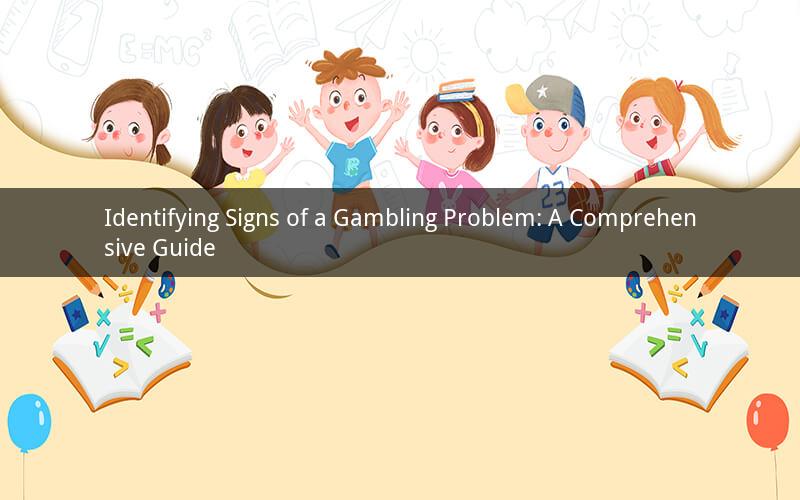
Introduction:
Gambling addiction, also known as gambling disorder, is a serious condition that affects millions of individuals worldwide. Recognizing the signs of a gambling problem is crucial for early intervention and seeking help. This article aims to provide a comprehensive guide on how to know if someone has a gambling problem, along with frequently asked questions at the end.
Understanding Gambling Addiction:
Gambling addiction is characterized by an inability to control or stop gambling, despite negative consequences. It is important to differentiate between occasional gambling and an addiction. Here are some key points to consider:
1. Persistent urge to gamble: The individual experiences a strong urge to gamble, often to relieve negative emotions or boredom.
2. Increasing gambling frequency and stakes: Over time, the person may start to gamble more frequently and increase the stakes to achieve the desired thrill.
3. Loss of control: The individual finds it difficult to control their gambling behavior, even when they want to stop.
4. Neglecting responsibilities: Gambling may interfere with work, family, and social life, leading to neglecting responsibilities and relationships.
5. Financial problems: Continual gambling can lead to significant financial losses, resulting in debt, bankruptcy, and other financial difficulties.
6. Emotional and psychological distress: Gambling addiction can cause anxiety, depression, and other mental health issues.
Signs to Look Out For:
Identifying the signs of a gambling problem can be challenging, especially if the individual is in denial. Here are some common signs to look out for:
1. Secretive behavior: The person may try to hide their gambling activities, such as lying about where they have been or what they have been doing.
2. Missing money: There may be unexplained disappearances of money or valuable items, indicating potential gambling-related debts.
3. Financial troubles: Persistent gambling can lead to significant financial problems, including debt, eviction, or foreclosure.
4. Borrowing money: The individual may frequently borrow money from friends, family, or loan sharks to fund their gambling habits.
5. Emotional and behavioral changes: Mood swings, irritability, and changes in personality may be observed in someone with a gambling problem.
6. Isolation: The person may start to withdraw from friends and family, preferring to spend time alone or with other gamblers.
7. Relapse: Even after trying to stop gambling, the person may relapse, experiencing a recurrence of their gambling behavior.
8. Preoccupation with gambling: The individual may constantly think about gambling, planning their next bet or reliving past gambling experiences.
9. Health issues: Chronic stress and anxiety can lead to physical health problems, such as headaches, stomachaches, and insomnia.
10. Legal issues: Gambling addiction may lead to illegal activities, such as theft or fraud, to fund gambling habits.
Frequently Asked Questions:
1. How can I tell if someone is a problem gambler?
If you notice signs such as secretive behavior, financial troubles, emotional and behavioral changes, or isolation, it is important to consider the possibility of a gambling problem.
2. Can someone have a gambling problem without being addicted?
Yes, it is possible to have a gambling problem without being addicted. Problem gambling refers to any gambling behavior that causes distress or harm, while addiction involves a stronger, more compulsive urge to gamble.
3. What should I do if I suspect someone has a gambling problem?
Encourage the individual to seek help from a professional, such as a therapist or counselor specializing in gambling addiction. Support them in their recovery journey and offer empathy and understanding.
4. Can gambling addiction be cured?
While there is no definitive cure for gambling addiction, it can be effectively managed and treated. Treatment options may include therapy, support groups, and medication.
5. How can I support someone with a gambling problem?
Be supportive and non-judgmental. Encourage them to seek professional help, offer to accompany them to appointments or support groups, and be a source of emotional support throughout their recovery process.
Conclusion:
Recognizing the signs of a gambling problem is essential for early intervention and seeking help. By understanding the nature of gambling addiction and identifying common signs, individuals can take proactive steps to support someone they suspect may have a gambling problem. Remember, there is hope, and recovery is possible with the right support and treatment.